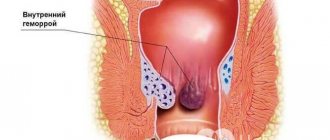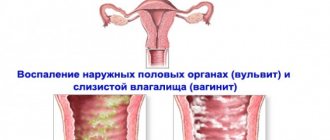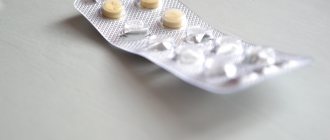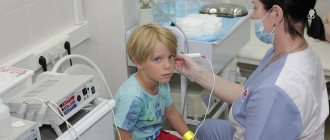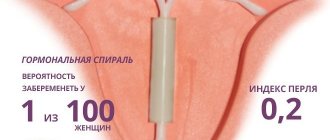Pregnancy greatly weakens a woman's body. All organs and systems are under enormous stress, some of them cannot cope with their assigned functions. During this period, long-standing chronic diseases often make themselves felt. New ones often arise.
It cannot be said that pregnancy is the cause of the development of these diseases. However, it certainly increases the risk. One such problem is hemorrhoids.
Causes of hemorrhoids during pregnancy
Strictly speaking, the reason why hemorrhoids occur is stagnation of blood in the veins in the pelvic area. But stagnation itself can begin for various reasons. First of all, this is facilitated by the modern lifestyle: a minimum of movement, most of the work is done while sitting. At this point, as you understand, almost every inhabitant of the modern world falls into the risk zone. This is where the reason for the frightening spread of hemorrhoids lies. According to statistics, more than 50% of the population of our country suffers from this disease at one stage or another.
With no less inevitability, constipation leads to the development of hemorrhoids, which means poor nutrition, an abundance of fatty and heavy foods. Unfortunately, more and more people are eating unevenly; fast food predominates on the menu. Naturally, this has a detrimental effect on digestion.
Physical activity, overexertion, and heavy lifting can also cause the development of hemorrhoids. For this reason, professional athletes often suffer from the disease. The disease may also be caused by other diseases.
External changes
Hemorrhoids during pregnancy are often accompanied by external changes, which can be recognized not only by a proctologist, but also by a gynecologist during examination. The symptoms become noticeable to the woman herself.
Among them are:
- an increase in the size of hemorrhoids, which can move outward and protrude from the anus;
- constant itching is accompanied by the appearance of superficial damage (scratching) and secondary inflammation in this area, which results in an unpleasant odor and redness of the skin;
- small droplets of blood can be detected, which are a consequence of damage to the vessel wall.
If the doctor or the pregnant woman herself discovers external signs of the disease, then you should definitely visit a specialized specialist and begin treatment. Otherwise, the risk of developing serious complications for the baby and mother increases. This is due to the fact that in the last stages of pregnancy, also immediately at the time of birth, the pressure in the veins of the small pelvis increases significantly. Only correct diagnosis and effective treatment can save a woman from possible problems in the future.
Symptoms of hemorrhoids during pregnancy
The symptoms of hemorrhoids during pregnancy are not much different from the manifestations of this disease at any other time:
- itching and burning in the anus;
- feeling of fullness in the intestines;
- pain during bowel movements;
- bleeding;
- liquid discharge.
Depending on the type and degree of hemorrhoids, it is determined how pronounced the symptoms will be and in what combination they will be. Note that if the signs of hemorrhoids during pregnancy are not very pronounced, this complicates the diagnosis.
Treatment of the disease
There are many remedies used to get rid of the problem. Treatment of hemorrhoids during pregnancy is not a problem. The examining proctologist gives advice, registers the pregnant woman, and begins treatment.
Physical therapy and morning exercises are prescribed. Recommended exercises are determined by the attending proctologist. It is important to observe your lifestyle: do not sit on a surface that is too cold (you cannot allow hypothermia in the pelvis), go for a walk lasting more than an hour.
Washing the anus after defecation has a good effect. Use cool water for a long time, washing the anus, moving the shower up and down.
Among the methods of conservative treatment, the greatest effect is recognized for anal suppositories (for internal nodes), antihemorrhoid ointment prescribed by the attending physician - Troxevasin.
It helps to read reviews of women who had hemorrhoids during pregnancy. It is not advisable to use the recommendations without consulting your doctor. The proctologist will competently assess the need for the proposed measures and the effect on the body.
Three groups of pregnant women with hemorrhoids
Speaking about the final diagnosis and the purpose of the diagnosis, patients are divided into three groups.
Group 1 includes women with hemorrhoids without unpleasant manifestations or severe symptoms. Treatment methods:
- physiotherapy;
- regulated diet;
- walking;
- water washing of the anus;
- drinking laxative herbs and medications.
Group 2 includes women whose hemorrhoids occur with typical symptoms - constipation, bleeding. Preventive measures are prescribed:
- use of anal suppositories, special ointments;
- warm baths with potassium permanganate;
- drinking infusions with medicinal herbs;
- rectal suppositories with the addition of additional medicinal substances - prescribed by a doctor.
Group 3 includes women whose hemorrhoids develop violently - requiring compulsory hospitalization and surgical intervention. The disease occurs in an acute form, hemorrhoids fall out, creating unpleasant sensations - even problems in resolving pregnancy. The duration of the operation differs depending on the individual manifestations of the disease.
In case of heavy bleeding and death of prolapsed nodes, the operation is performed as an emergency.
Therapeutic diet
The first step in treating hemorrhoids is constipation. The problem causes defecation problems. If you try too hard to empty your bowels, you are more likely to develop anal fissures. The effect is achieved with a special diet. Diet rules:
- more fruits and vegetables – preferably cooked;
- no alcohol, salty, spicy foods, canned food, marinades, pepper;
- refrain from fatty foods.
Recommended products include:
- broccoli, cauliflower (not white cabbage);
- pearl barley, oatmeal;
- apples (ripe);
- corn;
- raisin;
- honey;
- potato;
- carrot;
- beet;
- prunes;
- dried apricots.
The resulting acute hemorrhoids veto food:
- onion;
- mustard;
- legumes;
- black bread;
- dairy products with a high calorie content;
- unripe fruits, berries;
- sweet buns.
It is better not to be interested in treating hemorrhoids on your own. If you are afraid of development, consult a proctologist for prevention. The doctor will assess the degree of risk and recommend a remedy for preventive measures. Seeking treatment in the last month of pregnancy will help cure the problem.
Complications of hemorrhoids
If the problem is complicated by parallel current diseases, surgical treatment is resorted to. Removal of hemorrhoids is prescribed. Used in the absence of results from other means. Applies to mothers who are 9, 8 and 7 months pregnant - when the due date approaches, complications of childbirth with hemorrhoids are suspected. Clinics perform laser surgery and may resort to conservative methods.
Methods for getting rid of hemorrhoids:
- scleropathy - the introduction of sclerotic agents that glue the venous walls of the node. The knot begins to dissolve;
- ligation - the knot is clamped with a special ring made of latex. Within a week or 10 days, the accumulation of veins resolves;
- photocoagulation, laser exposure - after the technique, burns occur, but the hemorrhoid is burned and disappears.
The choice of technique depends on the degree of development of the disease, the duration of pregnancy, and the individual qualities of the patient. Surgeries after childbirth are more effective if the doctor allows you to delay the surgical intervention.
After surgery, it is important to follow a diet and adhere to a certain lifestyle. Otherwise, there is a risk that the body will not recover after surgery and will cause further complications.
Types of hemorrhoids
Doctors distinguish several types of hemorrhoids. First of all, it is worth talking about the classification based on the causes of occurrence .
- So hemorrhoids caused by constipation, a sedentary lifestyle or high workload are called primary . This means that it develops on its own.
- However, this disease may be a consequence or one of the complications of another disease. In this case, they talk about secondary hemorrhoids .
That is, before starting treatment, it is necessary to determine what caused the complication and treat the primary disease.
Please note that hemorrhoids that begin during pregnancy are considered primary. That is, its development is not directly related to pregnancy.
also internal and external hemorrhoids .
- The first type is characterized by the development of hemorrhoids deep in the rectum. From the outside, this type of disease is almost invisible, although it is very sensitive and more dangerous than external hemorrhoids.
- The latter is characterized by the development of hemorrhoidal angles directly near the anus.
Also, this disease can occur in a chronic or acute form.
Chronic hemorrhoids
Pregnancy is most often characterized by chronic hemorrhoids. In the early stages, it often manifests itself extremely weakly. Many women find out about their illness only during a routine gynecological examination or remain in the dark until childbirth.
As hemorrhoids develop, discomfort may come and go. But in any case, at first they are quite insignificant. This often reassures patients; they are confident that everything has passed or will pass on its own.
However, over time, hemorrhoids during pregnancy begin to bleed and hurt. And if in ordinary life the initial stage of the disease can last for several years, then pregnancy significantly accelerates its development.
Very quickly the sensations become more painful and the bleeding becomes constant. Over time, hemorrhoids may fall out of the anus due to extreme tension. There are 3 different stages of hemorrhoidal prolapse:
- At first, they fall out strictly during bowel movements, with strong straining or during excessive physical stress. When the tension passes, the nodes themselves move into place;
- At the next stage, strong tension is no longer required for the knots to fall out, in addition, they themselves are no longer set in place, this has to be done by hand;
- At the third stage, the slightest tension is enough for the nodes to fall out.
If hemorrhoids are not treated, sphincter tension increases over time. At a certain point, a period comes when it is no longer possible to set prolapsed hemorrhoids.
As already mentioned, internal or external hemorrhoids during pregnancy are an independent disease. However, these two processes cannot occur separately from each other; their mutual influence is inevitable. The uterus compresses the veins that are located in the pelvis, which provokes stagnation of blood in them. It also puts pressure on the intestines, which, coupled with some hormonal characteristics, has a negative effect on digestion, including causing constipation.
All this can both provoke the appearance of hemorrhoids and accelerate its development. Childbirth has a particularly significant impact on the rate of development of the disease, since during this period the tension in the pelvic area is very strong. Because of this, hemorrhoids often occur after pregnancy and childbirth.
However, hemorrhoids can significantly complicate childbirth. First of all, the fact that obstetricians will be forced to monitor the condition of hemorrhoids during the process. Due to enormous overvoltage, they can not only fall out, they can also burst, which is fraught with bleeding and blood loss.
Acute hemorrhoids
Acute hemorrhoids, as a rule, are a complication of the untreated chronic stage of the disease. This is why treatment of hemorrhoids during pregnancy is so necessary.
Typically, severe hemorrhoids during pregnancy begin to bother women in the later stages, when the enlarged uterus compresses the vessels in the pelvic area.
Diagnosis of hemorrhoids in pregnant women
Diagnosing hemorrhoids is quite simple: based on characteristic complaints, the doctor will quickly guess the problem, after which he will examine and feel the anus. As a rule, this is enough to make an accurate diagnosis. Now all that remains is to decide how to cure hemorrhoids in a particular case. Read more about treatment of hemorrhoids in pregnant women →
Prevention
Probably absolutely everyone knows that preventing the development of a disease is much easier than curing it. Doctors pay great attention to the prevention of hemorrhoids in expectant mothers. Given the enormous risks and depressing statistics, this aspect cannot be neglected.
- First of all, you must always monitor your diet and promptly solve the problem of constipation.
- In addition, it is very important to move more; the benefits of walking for pregnant women have also been discussed more than once.
- Don't strain yourself too much, don't carry heavy loads, and so on.
It is equally important to carefully monitor your condition, and if you find any signs of hemorrhoids, do not hesitate to consult a doctor. Timely treatment is no less important than prevention.
The need to treat hemorrhoids
Women doubt the dangers of hemorrhoids. The fact that the disease develops independently is confusing. Ladies believe that the pathology is not associated with pregnancy and does not affect its course. The opinion is wrong! Inflamed hemorrhoids cause discomfort at first, but later become a problem and cause problems during childbirth and the postpartum period. At the first signs of illness, begin treatment.
Complications of hemorrhoids:
- anemia (anemia);
- pathologies of the musculoskeletal system (arthritis);
- inflammation of the genitourinary system, cystitis;
- other diseases of the rectum;
- dermatological pathologies (itching, rashes, redness);
- cancerous tumors.
Regardless of the trimester, aggravated hemorrhoids need to be removed. An inflamed hemorrhoid seems harmless, but getting rid of it will help the pregnant woman and child. Good luck and health!
Symptoms of the disease
Hemorrhoids can be either internal or external.
Each stage has its own symptoms. Proctologist Kolesova:
Hemorrhoids are a serious disease that causes a lot of anxiety, fortunately, there are remedies that help both relieve symptoms and help heal. One of them …
Internal hemorrhoids at the first stage are expressed rather weakly. For these reasons, the onset of the development of the disease can be missed and attention can be paid to it only when the nodes begin to protrude outward. This occurs in the second and third stages of the disease.
The presence of external hemorrhoids in pregnant women is indicated by sagging nodes - either one or several at once. Inflamed hemorrhoidal cones cause a lot of inconvenience. It is difficult for a pregnant woman to sit, and walking causes a lot of difficulties. In addition, a woman may be bothered by itching, burning and spotting. The advanced form of the disease leads to the formation of thrombosis.
To prevent the development of the disease, a pregnant woman must monitor her health. At the slightest suspicion of the onset of hemorrhoids, she should consult a doctor.
Treatment of hemorrhoids after childbirth
Therapy for hemorrhoids, both during pregnancy and after childbirth, includes the following general instructions:
- lifestyle correction;
- elimination of constipation;
- normalization of water balance;
- meals by the hour;
- gymnastics to strengthen the muscles in the anal area;
- daily walks;
- It is better to breastfeed your baby or watch TV while lying down to minimize pressure on the rectal veins;
- hygienic regime.
To activate intestinal function, it is important to consume more fiber, vegetables, bran bread, cereals, fruits, dried fruits, etc.
Please note: a woman after childbirth should not ignore this problem, thinking that everything will go away on its own. Contacting a proctologist will allow you to clarify the diagnosis and select a treatment that will not harm the baby if the woman is breastfeeding.
Drug therapy for hemorrhoids in a nursing mother after childbirth is the same as during pregnancy.
If the child is bottle-fed, then the drugs from the list below are allowed:
- Suppositories with methyluracil . They contain an antibiotic that has a regenerating effect, heals the mucous membrane, stops bleeding, activates the immune system, stops bleeding and relieves pain.
- Ginkor Procto. These are suppositories with Ginko Biloba extract - a venoprotector that normalizes the elasticity and tone of veins, local blood circulation, and relieves inflammation.
- Candles with belladonna. A medicine with active substances in the form of phenol and belladonna extract. It relieves pain, has an antimicrobial effect, removes spasms, and eliminates the infectious process in the anus.
- Anestezol. Suppositories with a combined composition (menthol, benzocaine, zinc oxide), which perfectly stop bleeding, eliminate pain in the rectum, dry out and have an antiseptic effect.
- Nigepan. These suppositories contain benzocaine and heparin, which determine its analgesic and antimicrobial effect, and also prevent the formation of blood clots.
This video review is devoted to the problems of diagnosis, prevention and treatment of hemorrhoids during pregnancy and after childbirth:
Yulia Viktorova, obstetrician-gynecologist
42, total, today
( 39 votes, average: 4.18 out of 5)
Bleeding during menopause: causes, symptoms and treatment
Amenorrhea: causes, treatment
Related Posts
Diagnosis of hemorrhoids in pregnant women
Even regularly carried out preventive measures do not always prevent the appearance of hemorrhoids. In this case, it is necessary to begin therapeutic measures . But this should be done only after visiting a specialist, who must first examine the patient to make sure that it is hemorrhoids.
This procedure will not require much time. A woman only needs to describe her symptoms and undergo a manual examination. When the doctor makes a diagnosis, he will begin to select adequate treatment for hemorrhoids.
Proper nutrition
Normalization of nutrition is the key to a successful fight against hemorrhoids. It is especially important to correctly prepare a woman’s diet during pregnancy and before childbirth. At this time, the gastrointestinal tract is especially vulnerable.
Lack of regular bowel movements, frequent constipation and diarrhea increase the risk of hemorrhoids and inflammation in the rectum. To avoid such problems, it is necessary to normalize the stool. This can be done by following the rules of nutrition and drinking.
A woman during pregnancy needs to remember simple rules.
- It is imperative to increase the amount of fluid you drink daily. The volume of water must exceed 1.5 liters. In the morning, you should drink one glass of water on an empty stomach.
It is beneficial for pregnant women to drink a glass of water in the morning on an empty stomach
Pregnant women need to eat more fiber-rich foods - It is worth introducing foods that contain fiber into your diet. It is best to consume plant sources of micronutrients.
- Meals should be taken in small portions. A woman needs to eat every 2.5 hours.
- It is worth replacing harmful foods with healthy ones.
What to give up
It is important to pay attention to the quality of food and exclude harmful foods. Spicy, salty, fatty foods, seasoned with spices, are a woman’s main enemy. It becomes a source of constipation and has a negative effect on the body due to:
- expansion of the venous network;
- disturbances of local blood flow.
The result is itching and burning in the anus.
Before giving birth, it is necessary to exclude foods that are difficult to digest. These products include:
- mutton;
- pork;
- goose meat;
- mushrooms.
They contain heavy proteins that are difficult for a pregnant woman’s body to handle.
Digestive problems can occur due to increased gas formation. Therefore, the following should be banned:
- peas;
- Rye bread;
- beans;
- cabbage.
It is important to exclude fixing products. They contribute to constipation due to increased pressure on the walls of the rectum. These dishes are:
- rice and semolina cereals;
- pasta;
- potato;
- jelly.
You should be careful when consuming baked goods. The ban includes white and brown bread, baked goods, pastries, pies, and cookies. They contain easily digestible carbohydrates that are not needed during pregnancy. Sugar has a similar quality.
Not all fruits and vegetables are allowed. You need to choose only ripe fruits. Prohibited products are:
- blueberry;
- quince;
- dogwood;
- cowberry;
- pear;
- pomegranate.
Semi-finished products are considered dangerous. They contain a large number of food additives and chemical fillers.
A woman will have to give up strong meat broths, eggs and fatty cottage cheese.
Among the drinks, it is worth highlighting the most harmful ones, which contribute to disruption of the gastrointestinal tract. They are:
- strong tea;
- coffee;
- hot chocolate;
- soda.
Healthy foods
Having eliminated junk food, you should pay attention to healthy foods. They help normalize the functioning of the digestive system and help prevent the risk of hemorrhoids before childbirth.
It is necessary to introduce food into the diet that is enriched with soft fibers. These products include mainly dried fruits (dried apricots, prunes, figs).
Fruits will also be useful:
- bananas;
- apples;
- grape.
You can eat them fresh, and also make compotes from them. Vegetables you can eat, boiled or raw:
- cauliflower;
- carrot;
- onion;
- garlic;
- beets;
- tomatoes;
- zucchini;
- salad;
- pumpkin;
- greenery.
It is also useful to eat berries and nuts.
Eating meat and fish is allowed. It is worth remembering that you need to choose low-fat varieties. You can prepare buckwheat, oatmeal, barley and pearl barley as a side dish. Snacks are allowed in the form of dry low-fat cookies with honey.
A woman can drink before giving birth:
- mineral water;
- natural juices;
- fermented milk products (kefir, cream, milk, curdled milk).
Prevention
You can reduce the risk of hemorrhoids by changing your lifestyle.
- It is important to avoid hypothermia. A woman is prohibited from sitting on cold surfaces.
- It is necessary to control physical activity. After long periods of sitting or standing, you need to stretch your muscles.
- After defecation, hygiene must be maintained. Washing is carried out using warm water. You can also use chamomile decoction, which helps eliminate the inflammatory process.
- You can massage the anus area with a shower for one minute.
- To improve blood circulation and prevent stagnation, you need to take relaxing baths. It is allowed to add sea salt during the procedure.
- Toilet paper should be replaced with wet wipes.
- To reduce the risk of hemorrhoids before childbirth, it is necessary to maintain a regime of wakefulness and rest.
- A pregnant woman is prohibited from lifting weights.
Hemorrhoids are easier to prevent than to treat. It can create a lot of inconvenience for a woman before, during and after childbirth. Therefore, it is necessary to direct all efforts to prevent the development of the disease and enjoy pregnancy.



